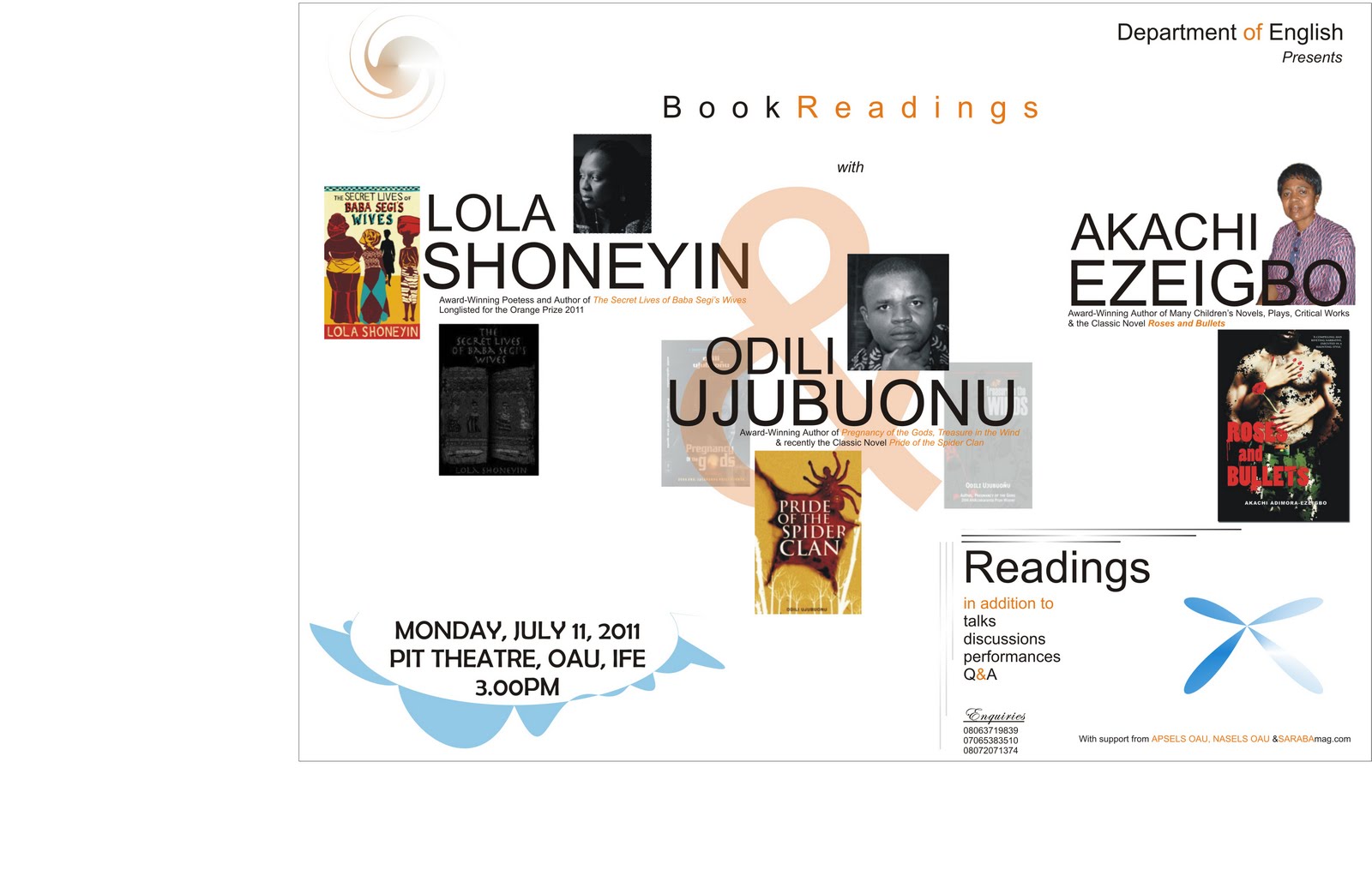My Mind Words Paper [Search results for international literature]
The Inaugural Sultan Qaboos Award for Culture, Arts and Literature
The King Faisal International Prize for Arabic Language and Literature 2012
Deadline May 15 | Call for Contributions - Bookbird: A Journal of International Children's Literature (Commonwealth nations)
Call for Contributions - Bookbird: A Journal of International Children's Literature (Commonwealth nations)
Complete Rules and Conditions: Etisalat Award For Arabic Children’s Literature
Fall 2012 Translation Lab: Writer-Translator Residency at Ledig House NY (fully funded/ worldwide)
Call for Papers: One-Day International Symposium on Ogori Culture and People at Ogori (Nigeria)
Call for Nominations for Sheikh Zayed International Book Award 2012

Invitation for Papers on African Literature and Drama: Lapiz Lazuli International Journal
RISSEA Intensive Swahili Language and Literature Studies at the National Museum of Kenya
Sierra Leone's Aminatta Forna Wins 2011 Commonwealth Writers’ Prize
2dn International Poetry Festival " Woman’ Scream"

Submissions Now Open: 7th Session of Sheikh Zayed International Book Award (for Arab Writers)
Arabic Literary Translation Workshop with Paul Starkey (London Review of Books)

1st Saraba Writing Workshop (Nigeria)
Hijabi Monologues Story Contest (for Mulsim American Women)
For Writers Writing in French: The $150,000 FIL Literary Award in Romance Languages 2011
Deadline June 15 | Call for Contributions for Edited Volume - Comparative Mediterranean Modernisms: Pan-Mediterranean Artistic Exchange in Literature
Apply Now: Housing Authors and Literature Denmark International Residency (4 spots for foreign authors)
Readings: Lola Shoneyin, Akachi Adimora Ezeigbo and Odili Ujubuonu at Pit Theatre (Obafemi Awolowo University, Nigeria)


